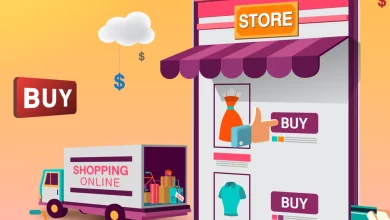How to Spot and Avoid Fraudulent Activities on Your Credit Card

Credit card scams and fraudulent activities pose a significant threat to individuals and businesses alike. It’s crucial to be aware of the common tactics used by scammers and fraudsters to protect yourself and your financial information. In this article, we will provide essential insights and practical tips on how to spot and avoid credit card scams. By understanding the warning signs, adopting preventive measures, and staying vigilant, you can safeguard your credit card information and prevent falling victim to fraudulent activities.
Monitoring Account Activity
Regularly monitoring your credit card account activity is crucial in detecting unauthorised transactions or suspicious behaviour. Review your monthly statements carefully, check for unfamiliar charges or discrepancies. Set up transaction alerts and notifications to receive real-time updates on your account activity. Utilize mobile banking apps or online portals provided by your credit card issuer to track transactions and quickly report any fraudulent activity.
Reporting Suspicious Activity
If you notice any suspicious activity or believe that you have fallen victim to a credit card scam, act promptly. Contact your credit card issuer immediately to report the issue and request assistance. They can help you freeze your account, investigate the unauthorized charges, and guide you through the necessary steps to protect your finances and identity. Additionally, report the incident to local law enforcement and file a complaint with relevant consumer protection agencies.
Securing Online Transactions
As online shopping continues to grow, it is essential to secure your credit card information during online transactions. Look for secure websites with HTTPS encryption and a padlock icon in the address bar. Avoid making purchases or entering personal information on public Wi-Fi networks, as they may not be secure. Use strong and unique passwords for your online accounts and enable multi-factor authentication whenever possible. Be cautious of unsolicited emails, links, or attachments that could be phishing attempts.
Verifying Legitimate Communication
Scammers often impersonate legitimate organizations to gain your trust and obtain sensitive information. Be wary of unsolicited phone calls, emails, or text messages requesting personal or financial details. If you receive such communication, independently verify the legitimacy of the request by contacting the organization directly using their official contact information. Avoid clicking on links or calling back on the numbers provided in suspicious messages, as they may lead to phishing websites or fraudsters.
Recognizing Common Credit Card Scams
Being familiar with common credit card scams is the first step in protecting yourself. Examples include phishing scams, where scammers impersonate legitimate institutions to obtain your personal information, and skimming devices that capture card details at ATMs or payment terminals. Other scams involve fraudulent purchases, identity theft, and fake credit card offers. By understanding the methods used by scammers, you can stay alert and recognize potential threats.
Protecting Personal Information
Safeguarding your personal information is crucial in preventing credit card scams. Never share sensitive details like your credit card number, CVV code, or PIN with anyone unless it is a trusted and secure transaction. Be cautious while providing information over the phone or through email, as scammers often pose as representatives from reputable organizations. Regularly monitor your credit reports and bank statements to detect any suspicious activity promptly.
Protecting yourself from credit card scams and fraudulent activities requires awareness, caution, and proactive measures. By recognizing common scams, safeguarding personal information, securing online transactions, verifying communication, monitoring account activity, and reporting suspicious incidents promptly, you can minimize the risk of falling victim to credit card fraud and enjoy a secure financial experience.




